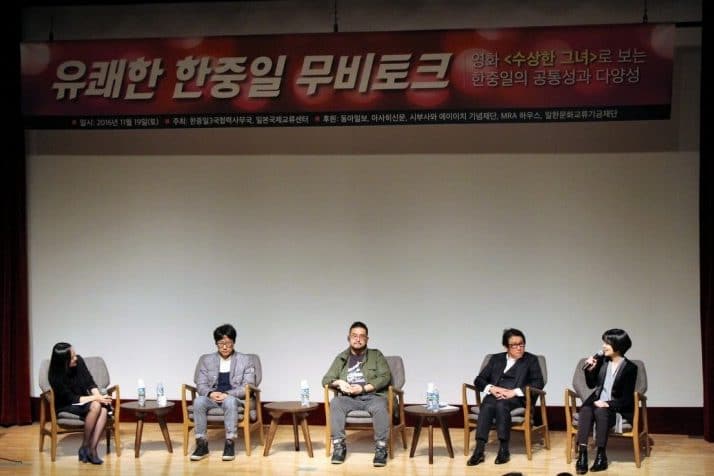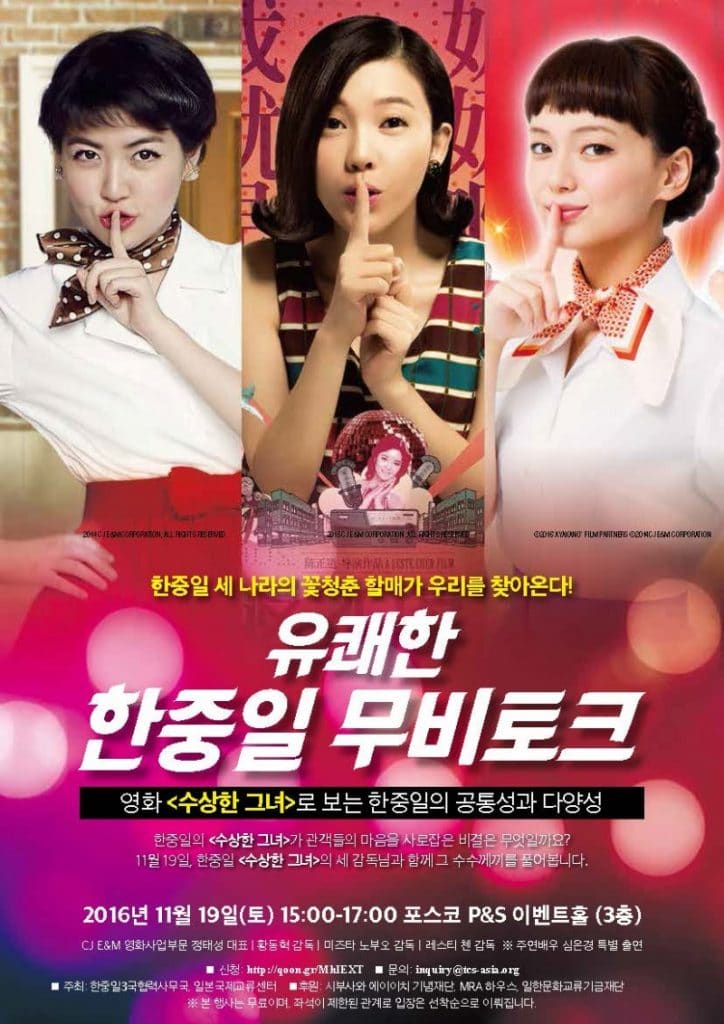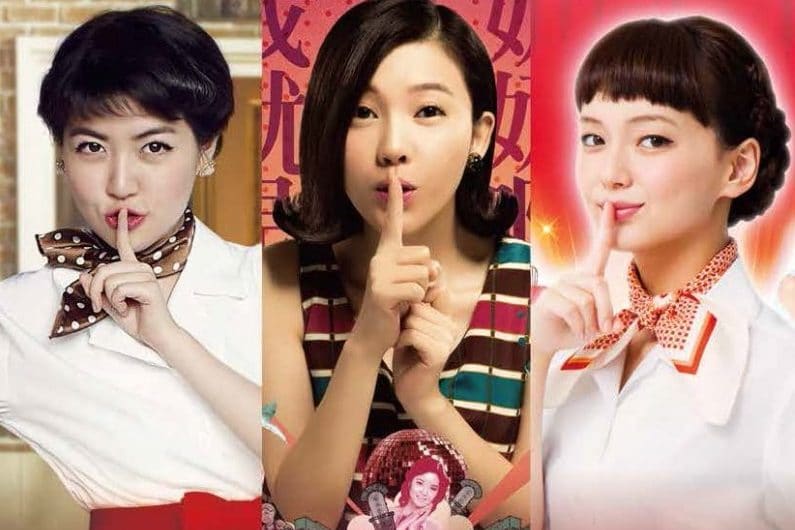This unique event brought together the director of a Korean movie together with the directors of Japanese and Chinese versions of the film for the first time to explore how these three versions of the same comedy illustrate the similarities and differences among the three countries. They were also joined by the Korean actress who starred in the movie and a representative from CJ E&M, which co-financed the films. The movie, known in Japanese as Ayashii Kanojo, is about a crotchety 70-year-old woman who is transformed back into a 20-year-old and given a second chance at life.
The Trilateral Cooperation Secretariat (TCS) and JCIE co-organized this “Trilateral Special Movie Talk: Understanding Similarities and Diversity among Korea, China, and Japan through the Movie Miss Granny” that drew roughly 200 people from diverse backgrounds and nationalities. The three directors of the trilateral “Miss Granny,” including Mr. Hwang Dong Hyeok, Mr. Leste Chen, and Mr. Mizuta Nobuo, participated in the event and shared interesting episodes regarding the film production and their views on the reason for the movies’ popularity. Ms. Shim Eun Kyung, the main actress of the Korean version, also shared her thoughts on the event and the popularity of the movie.
Miss Granny is a comedy about a woman in her 70s who magically finds herself in the body of her 20-year-old self after having her picture taken at a mysterious photo studio. After the release of the Korean original, Chinese and Japanese versions were produced. The Korean Miss Granny (2014) was a huge hit in South Korea, drawing 8.6 million people to theaters. The Chinese version, 20s Once Again (2015), directed by Director Leste Chen and starring Yang Zishan, also was a huge success and was the most-viewed China-ROK co-production of all time. Meanwhile, the Japanese version, Sing My Life, produced by Mr. Mizuta Nobuo and starring Ms. Tabe Mikako, was released in 2016 and found popularity among Japanese audiences.
In the opening, Yang Houlan highlighted the significance of the trilateral exchange in the field of popular culture that “enriches culture & arts of the three countries and enhances people’s mutual understanding.” Jeong Tae Seong, the CEO of the CJ E&M Film Division, which invested and distributed the movie also said that “this movie talk is meaningful in a sense that the three directors who first started the making Miss Granny into different languages are all gathered to share their invaluable experiences.” The discussions provided a chance to enhance people’s mutual understanding of the three countries through one of the most popular box office movies made in all three countries and contributed to expanding the trilateral network in the cultural industry.


October 15, 2016—China-Japan-Korea Environmental Symposium
May 12, 2016—Talking with America about China-Japan-Korea Relations
December 1, 2015—TV Dramas as a Reflection of the Times
November 14, 2015—China-Japan-ROK Youth Dialogue
September 16, 2015—Taste the Expanding World of Tea
June 5, 2015—Screening and Discussion: Learning from Pre-modern Korean Diplomacy
March 16, 2015—Interacting Cultures
January 16, 2015—A Fierce and Mutually Beneficial Rivalry
November 25, 2014—Opening up Future Possibilities through Stage and Video



